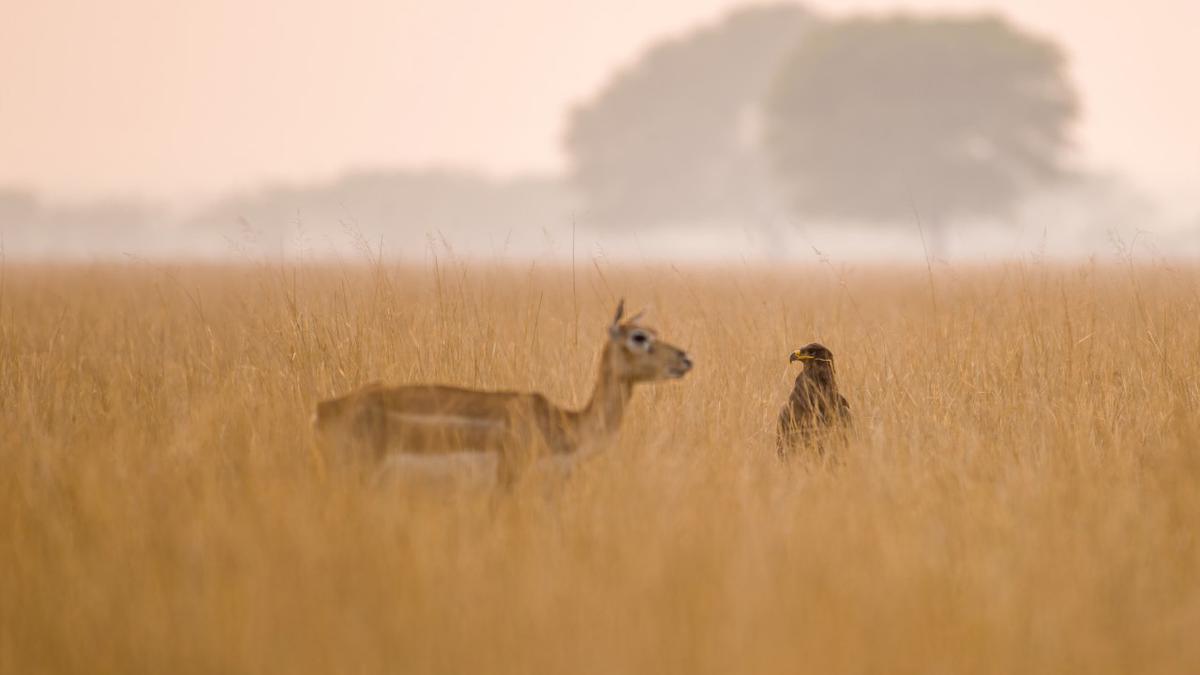Context
-
The famous Tal Chhapar blackbuck sanctuary in Rajasthan’s Churu district has received a protective cover against a proposed move of the State government to reduce the size of its eco-sensitive zone.
-
The World Wildlife Fund for Nature (WWF) has also taken up a major project for the conservation of raptors in the sanctuary.
About Tal Chhapar sanctuary
- The sanctuary is host to about 4,000 blackbucks and other wild animals, over 40 species of raptors and more than 300 species of resident and migratory birds.


Photo Credit: Special Arrangement - The sanctuary earlier had a large population of desert foxes and similar burrowing animals, while the large colonies of the only herbivorous lizard, the spiny-tailed lizard, exist as the prey base for raptors.
- The issues confronting the sanctuary include hyper-aridity, grazing pressure, the invasive weed Prosopis juliflora, and salt mines in the vicinity. The sanctuary’s area is insufficient for its large blackbuck population.
- As Tal Chhapar attracts a large number of raptor species for their habitation, the WWF has started monitoring them to understand their status and distribution in the sanctuary.
- The forest of this region falls under major group “Tropical Forest” as per classifications of Indian forests by Champion & Seth.
- The forest of sanctuary area again falls under the group “Topical Thorn Forest” and sub group 6B/C “Desert Thorn Forests”.
- In the Tal Chhapar Sanctuary, a special type of grass is found. This grass is called Mothiya locally. The word “Mothiya” comes from the word “Moti” or from the Hindi word for pearl.
- The shape of the seed of this grass is like very fine round shaped pearls. Mothiya has a very sweet taste.
Source: TH & Wikipedia
Visit Abhiyan PEDIA (One of the Most Followed / Recommended) for UPSC Revisions: Click Here
IAS Abhiyan is now on Telegram: Click on the Below link to Join our Channels to stay Updated
IAS Abhiyan Official: Click Here to Join
For UPSC Mains Value Edition (Facts, Quotes, Best Practices, Case Studies): Click Here to Join
